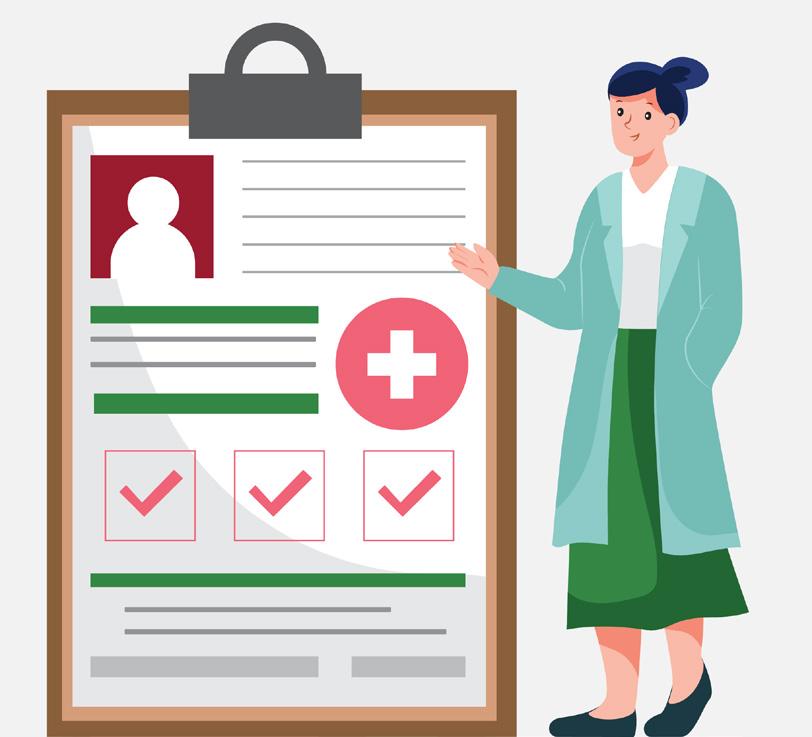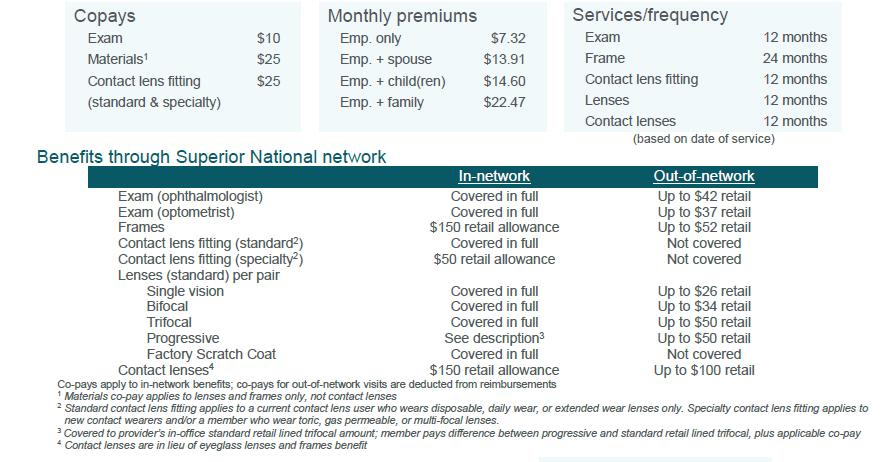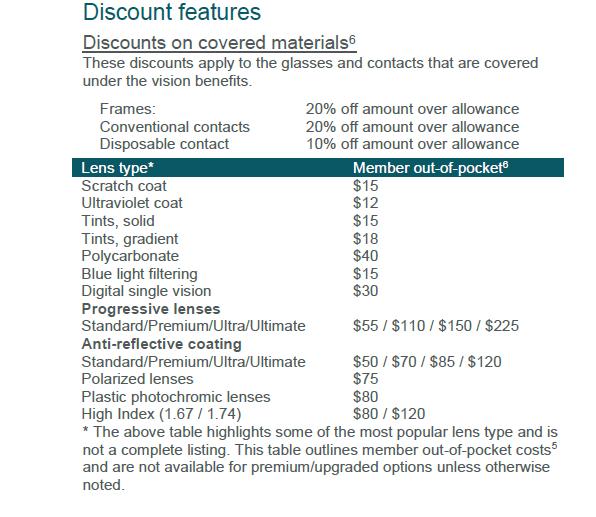

09/01/2024 - 08/31/2025





09/01/2024 - 08/31/2025


Higginbotham Public Sector (833) 453-1680 www.mybenefitshub.com/templeisd
Chubb
BCBSTX (866) 355-5999 www.bcbstx.com/trsactivecare
Group # 100000122 (888) 499-0425 www.chubb.com/us-en/ Cigna (800) 244-6224 www.Cigna.com
Chubb Group # 100000122 (888) 499-0425 www.chubb.com/us-en/
Colonial Life Group #E428046 (800) 325-4368 www.coloniallife.com
EECU (817) 882-0800 www.eecu.org
Superior Vision Group #34481 (800) 507-3800 www.superiorvision.com
Chubb Group # 100000122 (888) 499-0425 www.chubb.com/us-en/
Chubb Group # 100000122 (888) 499-0425 www.chubb.com/us-en/
5Star Life Insurance (866) 863-9753 www.5starlifeinsurance.com
Higginbotham (866) 419-3519 www.higginbotham.net
Chubb Group # 100000122 (888) 499-0425
www.chubb.com/us-en/
MASA (800) 423-3226 www.masamts.com



1 www.mybenefitshub.com/templeisd

2
3
4
Enter your Information
• Last Name
• Date of Birth
• Last Four (4) of Social Security Number
NOTE: THEbenefitsHUB uses this information to check behind the scenes to confirm your employment status. CLICK LOGIN
Once confirmed, the Additional Security Verification page will list the contact options from your profile. Select either Text, Email, Call, or Ask Admin options to receive a code to complete the final verification step.
5
Enter the code that you receive and click Verify. You can now complete your benefits enrollment!
During your annual enrollment period, you have the opportunity to review, change or continue benefit elections each year. Changes are not permitted during the plan year (outside of annual enrollment) unless a Section 125 qualifying event occurs.
• Changes, additions or drops may be made only during the annual enrollment period without a qualifying event.
• Employees must review their personal information and verify that dependents they wish to provide coverage for are included in the dependent profile. Additionally, you must notify your employer of any discrepancy in personal and/or benefit information.
• Employees must confirm on each benefit screen (medical, dental, vision, etc.) that each dependent to be covered is selected in order to be included in the coverage for that particular benefit.
All new hire enrollment elections must be completed in the online enrollment system within the first 31 days of benefit eligible employment. Failure to complete elections during this timeframe will result in the forfeiture of coverage.
Who do I contact with Questions? For supplemental benefit questions, you can contact your Benefit Office or you can call Higginbotham Public Sector at 866-914-5202 for assistance.
Where can I find forms? For benefit summaries and claim forms, go to your benefit website: www.mybenefitshub. com/templeisd. Click the benefit plan you need information on (i.e., Dental) and you can find the forms you need under the Benefits and Forms section.
How can I find a Network Provider? For benefit summaries and claim forms, go to the Temple ISD benefit website: www.mybenefitshub.com/templeisd. Click on the benefit plan you need information on (i.e., Dental) and you can find provider search links under the Quick Links section.
When will I receive ID cards? If the insurance carrier provides ID cards, you can expect to receive those 3-4 weeks after your effective date. For most dental and vision plans, you can login to the carrier website and print a temporary ID card or simply give your provider the insurance company’s phone number and they can call and
verify your coverage if you do not have an ID card at that time. If you do not receive your ID card, you can call the carrier’s customer service number to request another card. If the insurance carrier provides ID cards, but there are no changes to the plan, you typically will not receive a new ID card each year.
Actively-at-Work: You are performing your regular occupation for the employer on a full-time basis, either at one of the employer’s usual places of business or at some location to which the employer’s business requires you to travel. If you will not be actively at work beginning 9/1/2024 please notify your benefits administrator
Annual Enrollment: The period during which existing employees are given the opportunity to enroll in or change their current elections.
Annual Deductible: The amount you pay each plan year before the plan begins to pay covered expenses.
Co-insurance: After any applicable deductible, your share of the cost of a covered health care service, calculated as a percentage (for example, 20%) of the allowed amount for the service.
Guaranteed Coverage: The amount of coverage you can elect without answering any medical questions or taking a health exam. Guaranteed coverage is only available during initial eligibility period. Actively-at-work and/or pre-existing condition exclusion provisions do apply, as applicable by carrier.
In-Network: Doctors, hospitals, optometrists, dentists and other providers who have contracted with the plan as a network provider.
Out-of-Pocket Maximum: The most an eligible or insured person can pay in coinsurance for covered expenses.
Plan Year: September 1st through August 31st
Pre-Existing Conditions: Applies to any illness, injury or condition for which the participant has been under the care of a health care provider, taken prescriptions drugs or is under a health care provider’s orders to take drugs, or received medical care or services (including diagnostic and/ or consultation services).
A Cafeteria plan enables you to save money by using pre-tax dollars to pay for eligible group insurance premiums sponsored and offered by your employer. Enrollment is automatic unless you decline this benefit. Elections made during annual enrollment will become effective on the plan effective date and will remain in effect during the entire plan year.
Changes in benefit elections can occur only if you experience a qualifying event. You must present proof of a qualifying event to your Benefit Office within 30 days of your qualifying event and meet with your Benefit Office to complete and sign the necessary paperwork in order to make a benefit election change. Benefit changes must be consistent with the qualifying event.
CHANGES IN STATUS
(CIS):
Marital Status
Change in Number of Tax Dependents
Change in Status of Employment Affecting Coverage Eligibility
Gain/Loss of Dependents’ Eligibility Status
Judgment/ Decree/Order
Eligibility for Government Programs
A change in marital status includes marriage, death of a spouse, divorce or annulment (legal separation is not recognized in all states).
A change in number of dependents includes the following: birth, adoption and placement for adoption. You can add existing dependents not previously enrolled whenever a dependent gains eligibility as a result of a valid change in status event.
Change in employment status of the employee, or a spouse or dependent of the employee, that affects the individual’s eligibility under an employer’s plan includes commencement or termination of employment.
An event that causes an employee’s dependent to satisfy or cease to satisfy coverage requirements under an employer’s plan may include change in age, student, marital, employment or tax dependent status.
If a judgment, decree, or order from a divorce, annulment or change in legal custody requires that you provide accident or health coverage for your dependent child (including a foster child who is your dependent), you may change your election to provide coverage for the dependent child. If the order requires that another individual (including your spouse and former spouse) covers the dependent child and provides coverage under that individual’s plan, you may change your election to revoke coverage only for that dependent child and only if the other individual actually provides the coverage.
Gain or loss of Medicare/Medicaid coverage may trigger a permitted election change.
Supplemental Benefits: Eligible employees must work 20 or more regularly scheduled hours each work week.
Eligible employees must be actively at work on the plan effective date for new benefits to be effective, meaning you are physically capable of performing the functions of your job on the first day of work concurrent with the plan effective date. For example, if your 2024 benefits become effective on September 1, 2024, you must be actively-at-work on September 1, 2024 to be eligible for your new benefits.
Dependent Eligibility: You can cover eligible dependent children under a benefit that offers dependent coverage, provided you participate in the same benefit, through the maximum age listed below. Dependents cannot be double covered by married spouses within the district as both employees and dependents.
Please note, limits and exclusions may apply when obtaining coverage as a married couple or when obtaining coverage for dependents.
Potential Spouse Coverage Limitations: When enrolling in coverage, please keep in mind that some benefits may not allow you to cover your spouse as a dependent if your spouse is enrolled for coverage as an employee under the same employer. Review the applicable plan documents, contact Higginbotham Public Sector, or contact the insurance carrier for additional information on spouse eligibility.
FSA/HSA Limitations: Please note, in general, per IRS regulations, married couples may not enroll in both a Flexible Spending Account (FSA) and a Health Savings Account (HSA). If your spouse is covered under an FSA that reimburses for medical expenses then you and your spouse are not HSA eligible, even if you would not use your spouse’s FSA to reimburse your expenses. However, there are some exceptions to the general limitation regarding specific types of FSAs. To obtain more information on whether you can enroll in a specific type of FSA or HSA as a married couple, please reach out to the FSA and/or HSA provider prior to enrolling or reach out to your tax advisor for further guidance.
Potential Dependent Coverage Limitations: When enrolling for dependent coverage, please keep in mind that some benefits may not allow you to cover your eligible dependents if they are enrolled for coverage as an employee under the same employer. Review the applicable plan documents, contact Higginbotham Public Sector, or contact the insurance carrier for additional information on dependent eligibility.
Disclaimer: You acknowledge that you have read the limitations and exclusions that may apply to obtaining spouse and dependent coverage, including limitations and exclusions that may apply to enrollment in Flexible Spending Accounts and Health Savings Accounts as a married couple. You, the enrollee, shall hold harmless, defend, and indemnify Higginbotham Public Sector from any and all claims, actions, suits, charges, and judgments whatsoever that arise out of the enrollee’s enrollment in spouse and/or dependent coverage, including enrollment in Flexible Spending Accounts and Health Savings Accounts.
If your dependent is disabled, coverage may be able to continue past the maximum age under certain plans. If you have a disabled dependent who is reaching an ineligible age, you must provide a physician’s statement confirming your dependent’s disability. Contact your Benefit Office to request a continuation of coverage.
Description
Health Savings Account (HSA) (IRC Sec. 223)
Approved by Congress in 2003, HSAs are actual bank accounts in employee’s names that allow employees to save and pay for unreimbursed qualified medical expenses tax-free.
Flexible Spending Account (FSA) (IRC Sec. 125)
Allows employees to pay out-of-pocket expenses for copays, deductibles and certain services not covered by medical plan, taxfree. This also allows employees to pay for qualifying dependent care tax- free.
Employer Eligibility A qualified high deductible health plan. All employers
Contribution Source Employee and/or employer
Account Owner Individual
Underlying Insurance Requirement High deductible health plan
Minimum Deductible
Maximum Contribution
Permissible Use Of Funds
Cash-Outs of Unused Amounts (if no medical expenses)
Year-to-year rollover of account balance?
Does the account earn interest?
Portable?
Employee and/or employer
Employer
None
$1,600 single (2024)
$3,200 family (2024) N/A
$4,150 single (2024)
$8,300 family (2024) 55+ catch up +$1,000
Employees may use funds any way they wish. If used for non-qualified medical expenses, subject to current tax rate plus 20% penalty.
$3,200 (2024)
Reimbursement for qualified medical expenses (as defined in Sec. 213(d) of IRC).
Permitted, but subject to current tax rate plus 20% penalty (penalty waived after age 65). Not permitted
Yes, will roll over to use for subsequent year’s health coverage.
Yes
No. Access to some funds may be extended if your employer’s plan contains a 2 1/2-month grace period or $500 rollover provision.
No
Yes, portable year-to-year and between jobs. No
Major medical insurance is a type of health care coverage that provides benefits for a broad range of medical expenses that may be incurred either on an inpatient or outpatient basis.
For full plan details, please visit your benefit website: www.mybenefitshub.com/templeisd



Learn the Terms.
• Premium: The monthly amount you pay for health care coverage.
• Deductible: The annual amount for medical expenses you’re responsible to pay before your plan begins to pay.
• Copay: The set amount you pay for a covered service at the time you receive it. The amount can vary based on the service.
• Coinsurance: The portion you’re required to pay for services after you meet your deductible. It’s often a specified percentage of the costs; e.g., you pay 20% while the health care plan pays 80%.
• Out-of-Pocket Maximum: The maximum amount you pay each year for medical costs. After reaching the out-of-pocket maximum, the plan pays 100% of allowable charges for covered services.
A Health Savings Account (HSA) is a personal savings account where the money can only be used for eligible medical expenses. Unlike a flexible spending account (FSA), the money rolls over year to year however only those funds that have been deposited in your account can be used. Contributions to a Health Savings Account can only be used if you are also enrolled in a High Deductible Health Care Plan (HDHP).
www.mybenefitshub.com/templeisd
For full plan details, please visit your benefit website: www.mybenefitshub.com/templeisd
A Health Savings Account (HSA) is more than a way to help you and your family cover health care costs – it is also a tax-exempt tool to supplement your retirement savings and cover health expenses during retirement. An HSA can provide the funds to help pay current health care expenses as well as future health care costs.
A type of personal savings account, an HSA is always yours even if you change health plans or jobs. The money in your HSA (including interest and investment earnings) grows tax-free and spends tax-free if used to pay for qualified medical expenses. There is no “use it or lose it” rule — you do not lose your money if you do not spend it in the calendar year — and there are no vesting requirements or forfeiture provisions. The account automatically rolls over year after year.
You are eligible to open and contribute to an HSA if you are:
• Enrolled in an HSA-eligible HDHP (High Deductible Health Plan) Not covered by another plan that is not a qualified HDHP, such as your spouse’s health plan
• Not enrolled in a Health Care Flexible Spending Account, nor should your spouse be contributing towards a Health Care Flexible Spending Account
• Not eligible to be claimed as a dependent on someone else’s tax return
• Not enrolled in Medicare or TRICARE
• Not receiving Veterans Administration benefits
You can use the money in your HSA to pay for qualified medical expenses now or in the future. You can also use HSA funds to pay health care expenses for your dependents, even if they are not covered under your HDHP.
Your HSA contributions may not exceed the annual maximum amount established by the Internal Revenue Service. The annual contribution maximum for 2024 is based on the coverage option you elect:
• Individual – $4,150
• Family (filing jointly) – $8,300

You decide whether to use the money in your account to pay for qualified expenses or let it grow for future use. If you are 55 or older, you may make a yearly catch-up contribution of up to $1,000 to your HSA. If you turn 55 at any time during the plan year, you are eligible to make the catch-up contribution for the entire plan year.
If you meet the eligibility requirements, you may open an HSA administered by EECU. You will receive a debit card to manage your HSA account reimbursements. Keep in mind, available funds are limited to the balance in your HSA.
• Always ask your health care provider to file claims with your medical provider so network discounts can be applied. You can pay the provider with your HSA debit card based on the balance due after discount.
• You, not your employer, are responsible for maintaining ALL records and receipts for HSA reimbursements in the event of an IRS audit.
• You may open an HSA at the financial institution of your choice, but only accounts opened through EECU are eligible for automatic payroll deduction and company contributions.
• Online/Mobile: Sign-in for 24/7 account access to check your balance, pay bills and more.
• Call/Text: (817) 882-0800 EECU’s dedicated member service representatives are available to assist you with any questions. Their hours of operation are Monday through Friday from 8:00 a.m. to 7:00 p.m. CT, Saturday 9:00 a.m. to 1:00 p.m. CT and closed on Sunday.
• Lost/Stolen Debit Card: Call the 24/7 debit card hotline at (800)333-9934.
• Stop by a local EECU financial center: www.eecu.org/ locations.
It’s not easy to pay hospital bills, especially if you have a high deductible medical plan. Chubb Hospital Cash pays money directly to you if you are hospitalized so you can focus on your recovery. And since the cash goes directly to you, there are no restrictions on how you use your money.
5.4 days $30,000

Hospital Admission Benefit
This benefit is for admission to a hospital or hospital sub-acute intensive care unit.
Hospital Confinement Benefit
This benefit is for confinement in hospital or hospital sub-acute intensive care unit.
Hospital Confinement ICU Benefit
The benefit for confinement in a hospital intensive care unit.
Hospital Admission ICU Benefit
This benefit is for admission to a hospital intensive care unit.
Newborn Nursery
This benefit is payable for an insured newborn baby receiving newborn nursery care and who is not confined for treatment of a physical illness, infirmity, disease or injury.
• $1,500
• Maximum Benefit Per Calendar Year: 2
• $100 Per Day
• Maximum Days Per Calendar Year: 30
• $150 Per Day
• Maximum Days Per Calendar Year: 30
• $3,000
• Maximum Benefit Per Calendar Year: 2
• $500 Per Day
• Maximum Days per Confinement - Normal Delivery: 2
• Maximum Days per Confinement - Caesarean Section: 2
• $3,000
• Maximum Benefit Per Calendar Year: 2
• $200 Per Day
• Maximum Days Per Calendar Year: 30
• $250 Per Day
• Maximum Days Per Calendar Year: 30
• $6,000
• Maximum Benefit Per Calendar Year: 2
• $500 Per Day
• Maximum Days per Confinement - Normal Delivery: 2
• Maximum Days per Confinement - Caesarean Section: 2

Dental insurance is a coverage that helps defray the costs of dental care. It insures against the expense of routine care, dental treatment and disease. For full plan details, please visit your

Prophylaxis: routine cleanings
X-rays: routine
X-rays: non-routine
Fluoride Application
Sealants: per tooth
Space Maintainers: non-orthodontic
Class II: Basic Restorative Restorative: fillings
Endodontics: minor and major
Periodontics: minor and major
Oral Surgery: minor and major
Anesthesia: general and IV sedation
Emergency Care to Relieve Pain (Note: This service is administrated at the in network coinsurance level.)
Class III: Major Restorative Inlays and Onlays
Prosthesis Over Implant
Crowns: prefabricated stainless steel / resin
Crowns: permanent cast and porcelain
Bridges and Dentures
Repairs: bridges, crowns and inlays
Repairs: dentures
Denture Relines, Rebases and Adjustments
Class IV: Orthodontia
Coverage for Dependent Children to age 19
$1,000
Class I: Diagnostic & Preventive Oral Evaluations
Prophylaxis: routine cleanings
X-rays: routine
X-rays: non-routine
Fluoride Application
Sealants: per tooth
Space Maintainers: non-orthodontic
Class II: Basic Restorative Restorative: fillings
Endodontics: minor and major
Periodontics: minor and major
Oral Surgery: minor and major
Anesthesia: general and IV sedation
Emergency Care to Relieve Pain (Note: This service is administrated at the in network coinsurance level.)
Class III: Major Restorative Inlays and Onlays
Prosthesis Over Implant
Crowns: prefabricated stainless steel / resin
Crowns: permanent cast and porcelain
Bridges and Dentures
Repairs: bridges, crowns and inlays
Repairs: dentures
Denture Relines, Rebases and Adjustments
Prophylaxis: routine cleanings
X-rays: routine
X-rays: non-routine
Fluoride Application
Sealants: per tooth
Space Maintainers: non-orthodontic
Class II: Basic Restorative Restorative: fillings
Endodontics: minor and major
Periodontics: minor and major
Oral Surgery: minor and major
Anesthesia: general and IV sedation
Repairs: bridges, crowns and inlays
Repairs: dentures
Denture Relines, Rebases and Adjustments
Crowns: prefabricated stainless steel / resin Emergency Care to Relieve Pain (Note: This service is administrated at the in network coinsurance level.)
Vision insurance helps cover the cost of care for maintaining healthy vision. Similar to an annual checkup at your family doctor, routine eyecare is necessary to ensure that your eyes are healthy and to check for any signs of eye conditions or diseases . Most plans cover your routine eye exam with a copay and provide an allowance for Frames or Contact Lenses.

For full plan details, please visit your benefit website: www.mybenefitshub.com/templeisd
Superior Vision Customer Service 1-800-507-3800

• In-network benefits available through network eye care professionals.


• Find an in-network eye care professional at superiorvision.com. Call your eye doctor to verify network participation.
• Obtain a vision exam with either an MD or OD.
• Flexibility to use different eye care professionals for exam and for eyewear.
• Access your benefits through our mobile app – Display member ID card – view your member ID card in full screen or save to wallet .
Our network is built to support you.
• We manage one of the largest eye care professional networks in the country .
• The network includes 50 of the top 50 national retailers. Examples include:
• In-network online retail Providers :
Members may also receive additional discounts, including 20% off lens upgrades and 30% off additional pairs of glasses.*
*Discounts are provided by participating locations. Verify if their eye care professional participates in the discount featur e before receiving service. www.mybenefitshub.com/templeisd
A LASIK discount is available to all covered members. Our Discounted LASIK services are administered by QualSight. Visit lasik.sv.qualsight.com to learn more.
Members save up to 40% on brand name hearing aids and have access to a nationwide network of licensed hearing professionals through Your Hearing Network.







Not all providers participate in Superior Vision Discounts, including the member out-of-pocket features. Call your provider prior to scheduling an appointment to confirm if he/she offers the discount and member out-of-pocket features. The discount and member out-of-pocket features are not insurance. Discounts and member out-of-pocket are subject to change without notice and do not apply if prohibited by the manufacturer. Lens options may not be available from all Superior Vision providers/all locations.
Disabilities may occur more often than you think. If you can’t earn a paycheck due to disability, your savings might not be enough to cover household expenses plus healthcare and recovery costs that can continue for months.
The Educator Income Protection Plan from Chubb is coverage that pays you cash benefits if you cannot work. The plan gives you the flexibility to choose the right level of coverage to suit your needs and provides a robust set of benefits to help you through a difficult time.
Eligibility
Monthly Benefit Amount
Guaranteed Minimum Benefit
Elimination Period – Injury/Sickness
Pre-Existing Condition Waiver*

Employees actively at work for at least 15 hours per week.
You can elect to purchase one of the following percentage of earnings as your benefit amount:
The greater of 10% of the employee’s monthly earnings or $100
You can elect one of the following elimination periods under this plan:
During the initial enrollment period the pre-existing condition limitation will be waived for the first 90 days
* Benefits are subject to a 3/12 pre-existing condition limitation (see below for additional information)
You must be at work with your employer on your regularly scheduled workday. On that day, you must be performing all of your regular duties in the usual way and for your usual number of hours. If school is not in session due to normal vacation or school break(s), actively at work shall mean you are able to report for work with your employer, performing all of the regular duties of your occupation in the usual way for your usual number of hours as if school was in session.
Coverage is available to you without answering any medical questions or providing evidence of insurability. You may enroll on or before the enrollment deadline. After the initial enrollment period, you can apply only during an annual enrollment period. New Hires: Coverage is available to you without answering any medical questions or providing evidence of insurability. You may apply for coverage within 60 days after your eligibility date. If you do not apply within 60 days after your eligibility date, you can apply only during an annual enrollment period. Benefits may be subject to the pre-existing condition limitation.
The elimination period is the length of time you must be continuously disabled before you can receive benefits. If you elect an elimination period of 30 days or less, if you are confined to a hospital due to a disability, the elimination period will be waived, and benefits will be payable from the first day of hospitalization.
If you were insured under your district’s prior plan and not receiving benefits the day before this policy is effective, there will not be a loss in coverage and you will get credit for your prior carrier’s coverage.
Benefits under this provision are payable for no more than 90 days of benefit from the date of disability. After 90 days, benefits are subject to a 3/12 pre-existing condition limitation. This applies to new hires and/or newly eligible employees only.
In the event of your death, your beneficiary will receive a lump sum death benefit equal to three months of your gross disability payment.
If you are disabled and participating in a vocational rehabilitation plan, you will be eligible for an additional expense benefit payment of $250 per child/family member not to exceed $1,000 per month.
Pre-existing Condition Limitation – You have a pre-existing condition if you received medical treatment, consultation, care or services including diagnostic measures, or took prescribed drugs or medicines in the 3 months just prior to your effective date of coverage and the disability begins in the first 12 months after your effective date of coverage. Late entrants and participants increasing coverage will be subject to a 3/12 pre-existing condition limitation.
Benefits will not be paid for disabilities caused by, contributed to by, or resulting from: 1) occupational sickness or injury; 2) commission or attempt to commit a felony; 3) intentionally self-inflicted harm; 4) active participation in a riot, insurrection or terrorist activity; 5) war; 6) incarceration; 7) loss of professional or occupational license, or certification.
Maximum Period of Payment for all disabilities due to mental illness is 24 months for each disability. Maximum Period of Payment for all disabilities due to alcoholism or drug abuse is 24 months for each disability.
In addition to your monthly disability payment, you will receive a monthly education expense benefit in the amount of $200 for each eligible student, limited to a combined monthly maximum of $1,000. ¹

Cancer insurance offers you and your family supplemental insurance protection in the event you or a covered family member is diagnosed with cancer. It pays a benefit directly to you to help with expenses associated with cancer treatment.
For full plan details, please visit your benefit website: www.mybenefitshub.com/templeisd
www.mybenefitshub.com/templeisd

If diagnosed with cancer, how will you pay for what your health insurance won’t?
Nearly everyone has experienced or knows somebody who has experienced a cancer diagnosis in their family. The good news is that cancer screenings and cancer-fighting technologies have gotten a lot better in recent years. However, with advanced technology come high costs. Major medical health insurance is a great start, but even with this essential safety net, cancer sufferers can still be hit with unexpected medical and non-medical expenses.
Cancer coverage from Colonial Life offers the protection you need to concentrate on what is most important — your care.
Features of Colonial Life’s Cancer Insurance:
1. Pays benefits to help with the cost of cancer screening and cancer treatment.
2. Provides benefits to help pay for the indirect costs associated with cancer, such as:
• Loss of wages or salary
• Deductibles and coinsurance
• Travel expenses to and from treatment centers
• Lodging and meals
• Child care
3. Pays regardless of any other insurance you have with other insurance companies.
4. Provides a cancer screening benefit that you can use even if you are never diagnosed with cancer.
5. Benefits paid directly to you unless you specify otherwise.
6. Flexible coverage options for employees and their families.
This is a brief description of some available benefits.
We will pay benefits if one of the following routine cancer screening tests is performed or if cancer is diagnosed while your coverage is in force.
This benefit is payable once per calendar year per covered person.
• Pap Smear
• ThinPrep Pap Test1
• CA125 (Blood test for ovarian cancer)
• Mammography
• Breast Ultrasound
• CA 15-3 (Blood test for breast cancer)
• PSA (Blood test for prostate cancer)
• Chest X-ray
• Biopsy of Skin Lesion
• Colonoscopy
• Virtual Colonoscopy
• Hemoccult Stool Analysis
• Flexible Sigmoidoscopy
• CEA (Blood test for colon cancer)
• Bone Marrow Aspiration/Biopsy
• Thermography
• Serum Protein Electrophoresis (Blood test for Myeloma)
To file a claim for a covered cancer screening/wellness test, it is not necessary to complete a claim form. Call our tollfree Customer Service number, 1.800.325.4368, with the medical information
Inpatient Benefits
• Hospital and Hospital Intensive Care Unit Confinement
• Ambulance
• Private Full-Time Nursing Services
• Attending Physician
Treatment Benefits (In-or Outpatient)
• Radiation/Chemotherapy
• Antinausea Medication
• Blood/Plasma/Platelets/Immunoglobulins
• Experimental Treatment
• Hair Prosthesis/External Breast/Voice Box Prosthesis
• Supportive/Protective Care Drugs and Colony Stimulating Factors
• Bone Marrow Stem Cell Transplant
• Peripheral Stem Cell Transplant
Surgery Benefits
• Surgery Procedures (including skin cancer)
• Anesthesia (including skin cancer)
• Second Medical Opinion
• Reconstructive Surgery
• Prosthesis/Artificial Limb
• Outpatient Surgical Center
Transportation/Lodging Benefits
• Transportation
• Transportation for Companion
• Lodging
Extended Care Benefits
• Skilled Nursing Care Facility
• Hospice
• Home Health Care Service
Waiver of Premium
THIS IS A CANCER ONLY POLICY.
This policy has exclusions and limitations. For cost and complete details of the coverage, see your Colonial Life benefits counselor. Coverage may vary by state and may not be available in all states. Applicable to policy form GCAN-MP and certificate form GCAN-C (including state abbreviations where used, for example GCAN-C-TX.)
1ThinPrep is a registered trademark of Cytyc Corporation.
Life insurance is an important part of your employee benefits package. Chubb Term Life and Accidental Death and Dismemberment (AD&D) insurance provides the protection your family needs if something were to happen to you. Your family can receive cash benefits paid directly to them that they can use to help cover expenses like mortgage payments, credit card debt, childcare, college tuition, and other household expenses.
Voluntary Term Life and AD&D Insurance is made available for purchase by you and your family. Employees must be actively at work for at least 15 hours per week.
Life Insurance/AD&D
Up to 7 times your annual earnings up to a maximum of $500,000 in $10,000 increments
For Your Spouse
$5,000 to $250,000 in $5,000 increments
For Your Dependent Children
$10,000
Reduction Schedule
45% at age 70
Accelerated Death Benefit for Long Term Care
Newly eligible employees and dependents: You and your eligible dependents may elect coverage up to the guaranteed issue amounts without answering health questions. Elections over the guaranteed issue amounts will require medical underwriting.
Current employees: At subsequent annual enrollments if you or your eligible dependents are currently enrolled in the plan, you may increase your coverage up to the guaranteed issue amounts without answering health questions. All amounts over the guaranteed issue will require medical underwriting.
*Please note that if you or your dependents did not elect coverage when first eligible, then you are considered a late entrant. Late entrants will be medically underwritten and will have to answer health questions for any amount of coverage elected.
4% of Death Benefit per month up to 50% of the Death Benefit to a maximum of $175,000
Accelerated Death Benefit for Terminal Illness 80% of Death Benefit
AD&D Covered Losses and Benefits
The AD&D plan provides additional protection for you and your dependents in the event of an accidental bodily injury resulting in death or dismemberment. In addition to standard dismemberment coverage, the following benefit provisions are included:
• Air Bag Benefit – 10% of AD&D Benefit up to $25,000
• Child Education Expense Benefit – 5% of employee’s AD&D benefit up to $5,000
• Common Carrier Benefit – Included
• Exposure and Disappearance Benefit – Included
• Seatbelt Benefit –10% of AD&D Benefit up to $25,000
Portability You can elect portable coverage, at group rates, if you terminate employment, reduce hours or retire from the employer.
Conversion When your group coverage ends, you may convert your coverage to an individual life policy without providing evidence of insurability.
You have the option to purchase Supplemental Term life Insurance. Listed below are the monthly rates.
Child Life/AD&D
rate is $2.00 for $10,000. One premium covers all children.
No benefits will be paid for losses that are caused by, contributed to, or result from: 1) suicide, while sane or insane, occurring within 24 months after a Covered Person’s initial effective date of coverage; and 2) suicide, while sane or insane, occurring within two years after the date any increases in or additional coverage applied for becomes effective for a Covered Person.
The Policy does not cover: 1) an infection not occurring as a direct result or consequence of Accidental Bodily Injury; 2) loss caused or contributed to by attempted suicide, while sane or insane; 3) loss caused or contributed to by intentionally self-inflicted harm, while sane or insane; 4) loss caused or contributed to by war or act of war; 5) loss caused or contributed to by active participation in a riot, insurrection; or terrorist activity; 6) loss caused or contributed to by committing or attempting to commit a felony; 7) loss caused or materially contributed to by voluntary intake or use by any means of any drug, unless: a) prescribed or administered by a Physician and taken in accordance with the Physician’s instructions; or b) an over-the-counter drug, taken in accordance with the instructions; 8) loss caused or contributed to being intoxicated as defined by the jurisdiction where the Accident occurred; and 9) loss caused or materially contributed to by participation in an illegal occupation or activity.

Contact the HPS Benefits CareLine via the QR code or (833) 453-1680
*Please refer to your Certificate of Insurance at https://www.mybenefitshub.com/templeisd for a complete listing of available benefits, limitations and exclusions. Underwritten by ACE Property & Casualty Company, a Chubb company.
You do everything you can to stay active and healthy, but accidents happen every day. An injury that hurts an arm or a leg can hurt your finances too. Chubb Accident pays cash benefits directly to you regardless of any other coverage you have. Benefits can be used to help cover health plan gaps for out-of-pocket expenses like deductibles, copays, and coinsurance.
Knee Cartilage - Torn
Lacerations
Paralysis
Two Limbs (paraplegia or hemiplegia)
Limbs (quadriplegia)

$60-$1,000
¹
Critical illness insurance can be used towards medical or other expenses. It provides a lump sum benefit payable directly to the insured upon diagnosis of a covered condition or event, like a heart attack or stroke. The money can also be used for non-medical costs related to the illness, including transportation, child care, etc.
For full plan details, please visit your benefit website: www.mybenefitshub.com/templeisd
Heart attacks, cancer and strokes happen every day and often unexpectedly. They don’t give you time to prepare and can take a serious toll on both your physical and financial well-being. Chubb Critical Illness pays cash benefits directly to you that you can use to help with your bills, your mortgage, your rent, your childcare—you name it—so you can focus on recovery.
Employee
Spouse

Every 40 seconds someone has a heart attack.¹ 1 in 3
Americans don’t have enough money readily available to cover an unexpected $400 expense.²
$10,000; $20,000; or $30,000 face amounts
$10,000; $20,000; or $30,000 face amounts
Child Included in the employee rate
No benefits will be paid for a date of diagnosis that occurs prior to the coverage effective date. Covered individuals must be treatment free from cancer for 12 months prior to diagnosis date and in complete remission. There is no pre-existing conditions limitation. All amounts are Guaranteed Issue — no medical questions are required for coverage to be issued.
- Payable once per insured per year
Childhood conditions
Pays 100% of the dependent child face amount; Provides benefits for childhood conditions (autism spectrum disorder; cerebral palsy; congenital birth defects: heart, lung, cleft lip, palate, etc; cystic fibrosis; Down’s syndrome; Gaucher disease; muscular dystrophy; type 1 diabetes).
Benefits are payable for a subsequent diagnosis of benign brain tumor; cancer; coma; coronary artery obstruction; heart attack; major organ failure; stroke; or sudden cardiac arrest.
Comprehensive coverage and care for emergency transport.
Our Emergent Plus membership plan includes:
Emergency Ground Ambulance Coverage1
Your out-of-pocket expenses for your emergency ground transportation to a medical facility are covered with MASA.
Your out-of-pocket expenses for your emergency air transportation to a medical facility are covered with MASA.
When specialized care is required but not available at the initial emergency facility, your out-of-pocket expenses for the ground or air ambulance transfer to the nearest appropriate medical facility are covered with MASA.
Should you need continued care and your care provider has approved moving you to a hospital nearer to your home, MASA coordinates and covers the expense for ambulance transportation to the approved medical facility.

Did you know?
51.3 million emergency responses occur each year
MASA protects families against uncovered costs for emergency transportation and provides connections with care services.
Source: NEMSIS, National EMS Data Report, 2023
MASA is coverage and care you can count on to protect you from the unexpected. With us, there is no “out-of-network” ambulance. Just send us the bill when it arrives and we’ll work to ensure charges are covered. Plus, we’ll be there for you beyond your initial ride, with expert coordination services on call to manage complex transport needs during or after your emergency — such as transferring you and your loved ones home safely.
Protect yourself, your family, and your family’s financial future with MASA.
A Flexible Spending Account allows you to pay for eligible healthcare expenses with a pre-loaded debit card. You choose the amount to set aside from your paycheck every plan year, based on your employer’s annual plan limit. This money is use it or lose it within the plan year.
For full plan details, please visit your benefit website: www.mybenefitshub.com/templeisd
www.mybenefitshub.com/templeisd

The Health Care FSA covers qualified medical, dental and vision expenses for you or your eligible dependents. You may contribute up to $3,200 annually to a Health Care FSA and you are entitled to the full election from day one of your plan year. Eligible expenses include:
• Dental and vision expenses
• Medical deductibles and coinsurance
• Prescription copays
• Hearing aids and batteries
You may have the option to enroll in both a HSA and FSA, however doing so will make your FSA a "Limited" FSA, which means it will only be available for dental and vision expenses. All medical expenses would need to be processed through your HSA.
The Higginbotham Benefits Debit Card gives you immediate access to funds in your Health Care FSA when you make a purchase without needing to file a claim for reimbursement. If you use the debit card to pay anything other than a copay amount, you will need to submit an itemized receipt or an Explanation of Benefits (EOB).
The Dependent Care FSA helps pay for expenses associated with caring for elder or child dependents so you or your spouse can work or attend school full time. You can use the account to pay for day care or baby sitter expenses for your children under age 13 and qualifying older dependents, such as dependent parents. Reimbursement from your Depend ent Care FSA is limited to the total amount deposited in your account at that time. To be eligible, you must be a single parent or you and your spouse must be employed outside the home, disabled or a full-time student.
• Overnight camps are not eligible for reimbursement (only day camps can be considered).
• If your child turns 13 midyear, you may only request reimbursement for the part of the year when the child is under age 13.
• You may request reimbursement for care of a spouse or dependent of any age who spends at least eight hours a day in your home and is mentally or physically incapable of self-care.
• The dependent care provider cannot be your child under age 19 or anyone claimed as a dependent on your income taxes.
• The maximum per plan year you can contribute to a Health Care FSA is $3,200. The maximum per plan year you can contribute to a Dependent Care FSA is $5,000 when filing jointly or head of household and $2,500 when married filing separately.
• You cannot change your election during the year unless you experience a Qualifying Life Event.
• In most cases, you can continue to file claims incurred during the plan year for another 90 days after the plan year ends.
• Your Health Care FSA debit card can be used for health care expenses only. It cannot be used to pay for dependent care expenses.
• The IRS has amended the “use it or lose it rule” to allow you to carry-over up to $640 in your Health Care FSA into the next plan year for eligible employers The carry-over rule does not apply to your Dependent Care FSA.
• Review your employer's Summary Plan Document for full details. FSA rules vary by employer.
Health care reform legislation requires that certain over-the-counter (OTC) items require a prescription to qualify as an eligible Health Care FSA expense. You will only need to obtain a one-time prescription for the current plan year. You can continue to purchase your regular prescription medications with your FSA debit card. However, the FSA debit card may not be used as payment for an OTC item, even when accompanied by a prescription.
Higginbotham Portal
The Higginbotham Portal provides information and resources to help you manage your FSAs.
• Access plan documents, letters and notices, forms, account balances, contributions and other plan information
• Update your personal information
• Utilize Section 125 tax calculators
• Look up qualified expenses
• Submit claims
• Request a new or replacement Benefits Debit Card
Register on the Higginbotham Portal
Visit https://flexservices.higginbotham.net and click Register. Follow the instructions and scroll down to enter your information.
• Enter your Employee ID, which is your Social Security number with no dashes or spaces.
• Follow the prompts to navigate the site.
• If you have any questions or concerns, contact Higginbotham:
∗ Phone – 866-419-3519
∗ Questions – flexsupport@higginbotham.net
∗ Fax – 866-419-3516
∗ Claims- flexclaims@higginbotham.net

Enrollment Guide General Disclaimer: This summary of benefits for employees is meant only as a brief description of some of the programs for which employees may be eligible. This summary does not include specific plan details. You must refer to the specific plan documentation for specific plan details such as coverage expenses, limitations, exclusions, and other plan terms, which can be found at the Temple ISD Benefits Website. This summary does not replace or amend the underlying plan documentation. In the event of a discrepancy between this summary and the plan documentation the plan documentation governs. All plans and benefits described in this summary may be discontinued, increased, decreased, or altered at any time with or without notice.
Rate Sheet General Disclaimer: The rate information provided in this guide is subject to change at any time by your employer and/or the plan provider. The rate information included herein, does not guarantee coverage or change or otherwise interpret the terms of the specific plan documentation, available at the Temple ISD Benefits Website, which may include additional exclusions and limitations and may require an application for coverage to determine eligibility for the health benefit plan. To the extent the information provided in this summary is inconsistent with the specific plan documentation, the provisions of the specific plan documentation will govern in all cases.